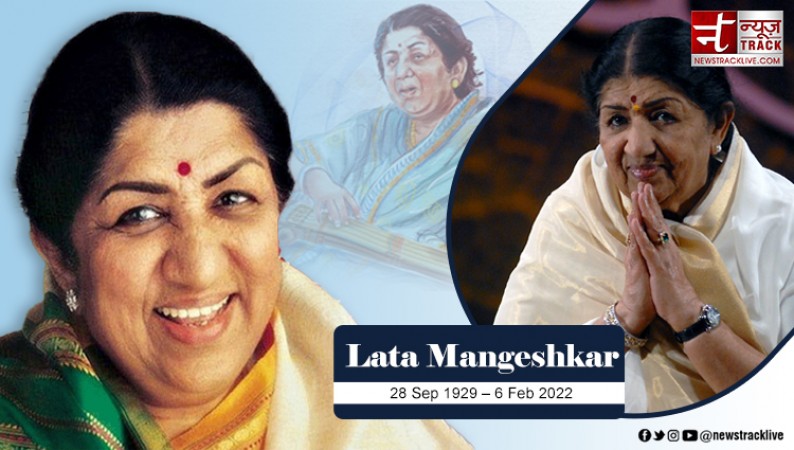
On September 28, 1929, in the city of Indore, British India, a legend was born. Her name was Lata Mangeshkar, and she would go on to become one of the most iconic and beloved playback singers in the history of Indian music. As we celebrate her birth anniversary, it's not just an occasion to remember the remarkable voice that enchanted millions but also to reflect on the profound impact she had on the Indian music industry and her enduring legacy.
The Voice that Mesmerized Generations
Lata Mangeshkar's voice was nothing short of divine. She possessed a vocal range that extended over more than three octaves, a rare gift that set her apart from her contemporaries. Her voice was versatile, capable of conveying a wide range of emotions - from joy and love to heartbreak and sorrow. Her ability to emote through her singing made her the perfect choice for playback singing in Indian cinema.
One of the defining features of Lata's voice was its timeless quality. Her songs continue to resonate with audiences of all generations. Whether it's the soul-stirring melodies of the 1950s or the foot-tapping numbers of the 80s, Lata Mangeshkar's voice was a constant presence in the ever-evolving landscape of Indian music. Her songs remain a source of comfort and nostalgia for millions, reminding them of the golden era of Hindi cinema.
Lata's contribution to the music of India cannot be overstated. She lent her voice to thousands of songs in various Indian languages, including Hindi, Marathi, Bengali, Gujarati, and more. Her ability to adapt to different languages and regional nuances showcased her remarkable versatility as a singer. From classical renditions to peppy numbers, she excelled in every genre.
A Life Devoted to Music
Lata Mangeshkar's journey in the world of music was not just about singing; it was a lifelong devotion to the art form. She was born into a family with deep musical roots. Her father, Pandit Deenanath Mangeshkar, was a renowned classical singer and theater actor. Lata inherited her musical genes from her father and her training began at a young age.
Her initial foray into the world of playback singing was not without its challenges. Lata faced rejections and criticism in the early stages of her career. Some music directors doubted her ability to make it big in the industry. However, her determination and unwavering commitment to her craft led her to overcome these obstacles.
It was in 1949 that Lata Mangeshkar's career truly took off with the song "Aayega Aanewala" from the movie Mahal. The haunting melody and her melodious voice captured the hearts of listeners across the nation. There was no looking back after that. She became the voice of countless heroines on-screen, breathing life into their characters through her songs.
Lata's collaborations with music directors like S.D. Burman, R.D. Burman, Shankar-Jaikishan, and Madan Mohan resulted in some of the most memorable and timeless songs in Indian cinema. Her duets with the legendary Kishore Kumar were especially popular and remain classics to this day.
The Nightingale's Impact
Lata Mangeshkar wasn't just a playback singer; she was an institution in herself. Her songs became an integral part of Indian culture. They were played at weddings, festivals, and gatherings, adding a touch of nostalgia and emotion to every occasion. Lata's voice had the power to transport listeners to a different world, evoking a myriad of emotions.
Apart from her playback singing, Lata also ventured into acting and produced music for Marathi films. Her contribution to Marathi music is equally significant, and she was a source of inspiration for many budding singers from the region.
But perhaps one of her most remarkable contributions was the way she inspired countless aspiring singers. Lata Mangeshkar's journey from humble beginnings to superstardom was a testament to hard work, dedication, and an unrelenting passion for music. She paved the way for women in the male-dominated music industry and broke many barriers, setting an example for future generations.
A Timeless Legacy
Lata Mangeshkar's illustrious career spanned over seven decades, and she received numerous accolades and honors in her lifetime. She was awarded the Bharat Ratna, India's highest civilian award, in 2001, making her the second vocalist, after M.S. Subbulakshmi, to receive this honor.
Her songs, like "Lag Jaa Gale," "Tere Bina Zindagi Se," and "Ae Mere Watan Ke Logon," are not just melodies; they are a part of India's cultural fabric. They have the power to bring tears to the eyes of those who listen, evoking memories of a bygone era.
Even though Lata Mangeshkar left this world on February 6, 2022, her voice lives on forever. Her songs continue to be sung and cherished by people of all ages. Each note she sang, each emotion she conveyed, and each melody she created remain etched in the hearts of millions.
As we celebrate the birth anniversary of this legendary artist, we remember not just the Nightingale of India but also the woman whose music became the soundtrack of our lives. Lata Mangeshkar's legacy is not just in the songs she sang but in the emotions she stirred and the memories she created. She will forever be an inspiration to those who dare to dream and a reminder that music has the power to touch the soul and transcend time.
In the words of the great singer herself, "Bhagwan ke bharose na baithiye, kya pata bhagwan hamare bharose baitha ho." (Don't rely on God; who knows, maybe God is relying on us.) Lata Mangeshkar didn't just rely on her God-given talent; she used it to create magic, and in doing so, she became a living legend, a true gift to the world of music.